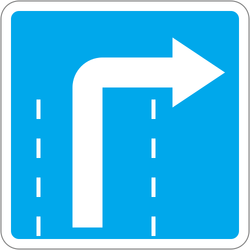Long before I ever worked for Wikia, I was an administrator on the Star Wars Fanon wiki—and I still am. One of the most important things I’ve learned in my time there is what the ideal role of an admin is, or at least should be. I think this is a really important topic here on Wikia, and I wanted to share my thoughts on this with you.
Admins, as you know, are users with additional editing tools to help with more advanced wiki maintenance (such as deleting and protecting pages), as well as policy enforcement tools like the ability to block users. That gives admins a lot of power, but there’s often a question as to what the role of an admin should be and how that power should be used. Are admins meant to be the boss of a wiki, or are they meant to be something else? I’d argue that they’re meant to be something else.
Admins should serve the community[]
This idea is an ideal scenario, and it’s one that may not be the most practical if you have a very small group of users working on a wiki, but this is the goal you should shoot for. What this means is that admins don’t make the rules and don’t make unilateral decisions, but rather they use their tools to carry out the will of the community.

Communities should come together to discuss issues and make decisions, rather than being done by a small group of admins.
Let’s take Star Wars Fanon as an example. One of the central policies there is the Manual of Style which overviews how articles should be formatted and put together on the wiki. This was not a policy enacted by me or any other administrator alone. This was a policy that had input from the community, and it was voted on by the community before it ever became policy. When a Star Wars Fanon admin enforces that policy, they’re not enforcing their own arbitrary ideas about a user should do. They’re saying “this is what the community would like you to do.” That’s very important, because it basically brings democracy to the wiki.
Just like in a democracy, when a wiki community votes on decisions rather than decisions being made by an admin, it sets up an important relationship between admins and the community that says the community is the most important decision-maker on the wiki. Admins have lots of extra editing tools that non-admins don’t have, but it puts admins into the position of not being the most important part of a wiki.
Admins should always be thought of not as bosses or rulers, but as guides who are no more or less important or influential than any other user on the wiki. All users on wikis should be equal, even those who have a few extra editing tools. After all, if admins were the only important people on the wiki, then there would be no need for users. That would certainly make building a community difficult! The title of administrator would not mean anything were it not for the non-administrators that make up most of a wiki’s community, because admins are there to serve the community.
Admins should be friendly guides[]
We’ve established now that admins shouldn’t be rulers, and that decision-making should be something done by the entire community of users. You may be asking, though, if admins aren’t there to make a decision, what can admins really do except push buttons?
With this understanding, admins will often be speaking directly to users, sometimes to give out warnings or to block users. Before an admin ever gets to that point, though, it’s a good idea to remain helpful and to try and guide users, even one on one, to an understanding of the community-decided rules. That’s what I mean when I say admins should be guides—they should be willing to provide in-depth support for users in figuring out what they need to do to learn policies better.

Admins are friendly helpers who can guide users towards becoming awesome editors.
Let’s create a scenario here where a user isn’t formatting a page correctly. Perhaps there are certain items that need to be italicized, or maybe there are specific spelling and grammar rules (American English vs. British English, for example). Let’s take at one way an admin could engage a user about that:
- Hello. Please read our article guidelines. Your recent edits have not followed our rules, and you need to read them and follow them when you make your next edits. Further infractions may lead to an official warning from an administrator, or you may be blocked for a short time. Thank you for your cooperation.
Here is another way:
- Hi there! I’ve been following some of your edits and you’ve done a really good job so far, but there are a few things that could use some improvement so they follow our article guidelines. First you want to make sure that you are using the correct spelling. We use American English here, so a word like “armour” should be spelled “armor” in articles. You also want to be sure to italicize the title of any movie you reference in your article, such as Star Wars instead of Star Wars. I know the rules can seem overwhelming, but I’m here to help! Feel free to leave me a message whenever you want, and I’ll be happy to lend a hand. Thanks!”
If you were to take a look at those two styles, which one would you think is the best? To me, the second one is undoubtedly better than the first. The first one makes a general statement about how someone is not following the rules, but it does not say how. It threatens the user rather than offering assistance, which can be pretty discouraging—especially for new editors. It also feels very mechanical and not at all personal, as if a robot had written it instead of a real person.
The second one, on the other hand, is immensely helpful. It tells someone exactly what it is that they need to improve upon, as well as how to improve upon it. It offers a clear sense that they can get help when they need it, and doesn’t threaten. If someone ignores you after multiple attempts like this to help, then you can of course move on to warnings. Just never do that in the beginning. This way, you can help users and guide them towards becoming great contributors.
So I guess admins are important![]
Totally. You don’t want to mistake deference to the community for unimportance. Admins are equal players with users, but they still play a crucial role in making sure that a wiki operates smoothly. They may not make all of the decisions, but they can certainly be very helpful in making sure that users know how to follow local rules—and that’s in addition to basic admin tasks like deletions and blocking, which can sometimes make the role of an admin seem mundane.
I hope this helps you better understand your local admins or become a better one yourself. If you have advice for what makes an ideal admin, please share it below.
Click here to follow the Fandom staff blog.
Click here to sign up for the From the Desk of Community email newsletter.
Join our Official Discord server for registered editors!

